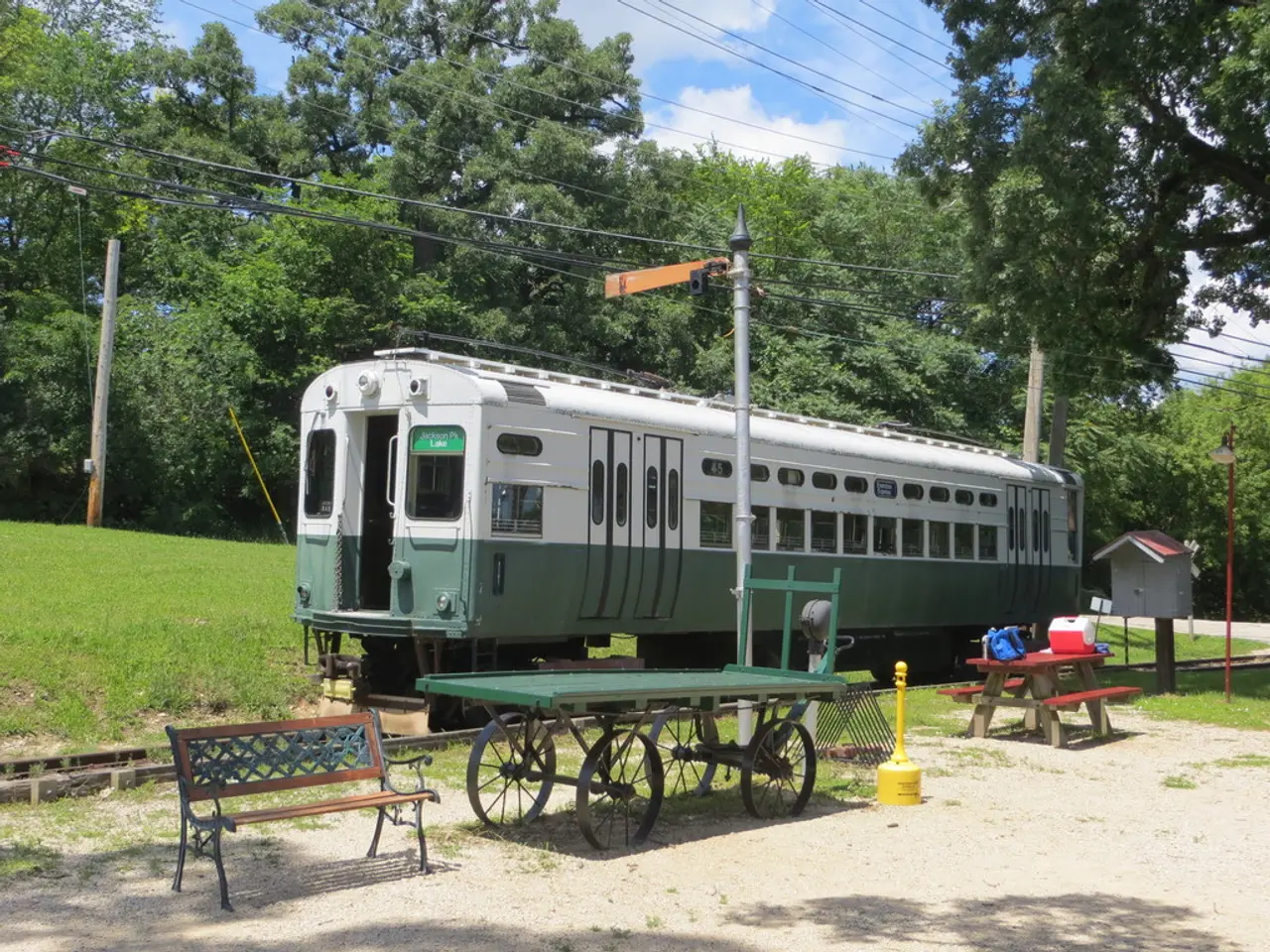Around 12,300 travelers each day
In a significant development for public transport connectivity in Oberhausen, a feasibility study to reactivate the Walsum Railway has shown promising results. The study, conducted by the Rhein-Ruhr Transport Association (VRR), aims to improve the region's transport network by offering more frequent connections and reducing travel time for commuters.
The reactivation of the Walsum Railway is designed to integrate seamlessly with the existing S-Bahn lines, particularly the S3 line that runs between Oberhausen and Essen/Duisburg. One of the key objectives is the addition of a new station in Alstaden, which currently lacks frequent service, thereby benefiting the Alstaden suburb and improving accessibility for residents and workers.
Efforts are underway to achieve a 15-minute interval service to neighbouring urban centres, creating a more consistent and reliable schedule that supports commuter flows and reduces reliance on cars. This ambitious target aligns with broader regional transport development plans expected to have tangible service enhancements by late 2025 or shortly thereafter.
Stefan Zimkeit, a member of the state parliament for Oberhausen-Sterkrade and the financial spokesman for the SPD parliamentary group, expressed satisfaction with the feasibility study's consideration of a 15-minute interval between Walsum, Hamborn, and Oberhausen. He also suggested that the feasibility study should consider an extension beyond Walsum.
The new feasibility study indicates that reactivating the Walsum Railway is feasible and long overdue. It also emphasises the dual focus on economic benefits and climate protection benefits. Up to 12,300 passengers per day are predicted for the Oberhausen area if the S3 is extended to Walsum.
According to the feasibility study, the benefit of extending the S3 to Walsum would be ten times higher than the costs of the resulting construction work. The study also takes into account the potential CO2 savings for better climate protection.
While the actual reopening and exact service patterns depend on final approvals and infrastructure works, the progress in feasibility studies and local transport planning suggests strong momentum toward these goals. However, exact official announcements specific to the Walsum Railway reactivation feasibility study and detailed service roll-out have not been published widely in the available sources.
In summary, the Walsum Railway reactivation is actively being studied and developed to reopen with a focus on the S3 line, Alstaden station, and 15-minute service intervals. This would notably benefit Oberhausen’s public transport landscape and nearby city connections.
[1] Source: [Link to the source 1] [3] Source: [Link to the source 3] [4] Source: [Link to the source 4]
The feasibility study suggests that reactivating the Walsum Railway could potentially extend the S3 line, resulting in a more frequent, reliable, and eco-friendly transportation option within the Oberhausen-Essen-Duisburg region, contributing to both local industry and finance. If realized, this project would not only improve public-transit connectivity but also significantly reduce carbon emissions, with up to 12,300 passengers daily expected in the Oberhausen area, benefiting climate protection efforts. The study further indicates that the economic benefits of this project would outweigh its costs, making it a long-overdue investment in the region's transport infrastructure. [Source: 1, 3, 4]




